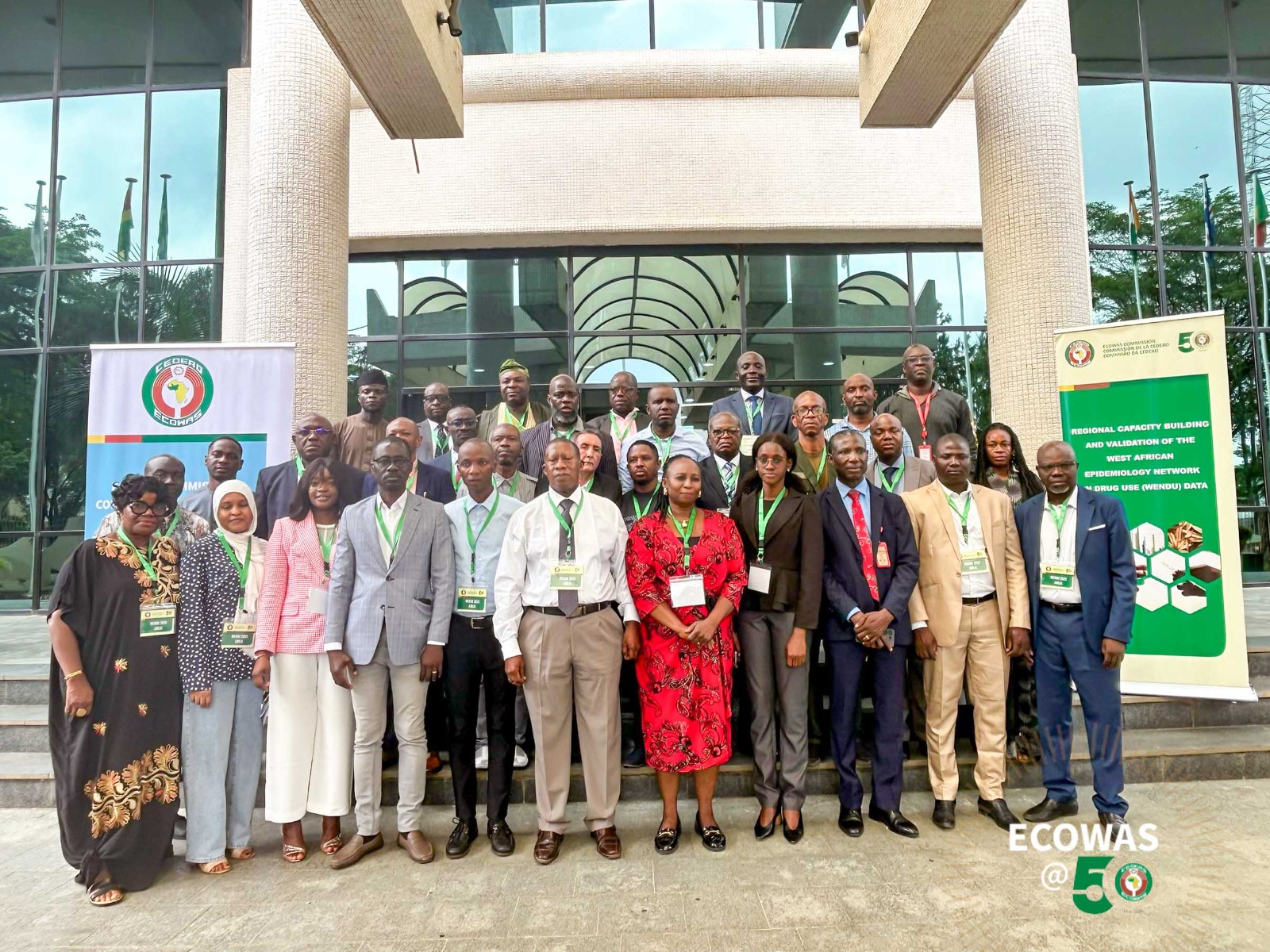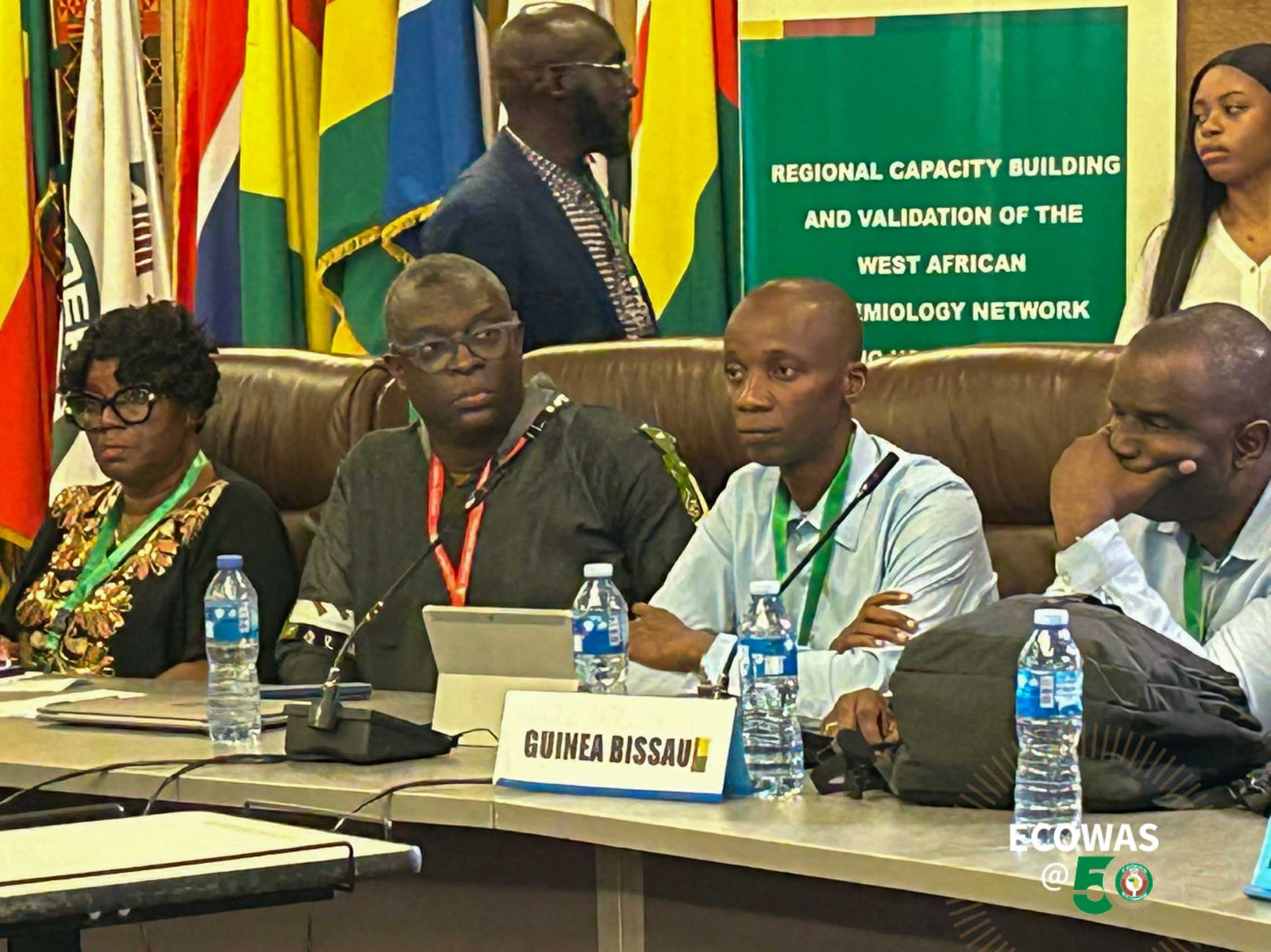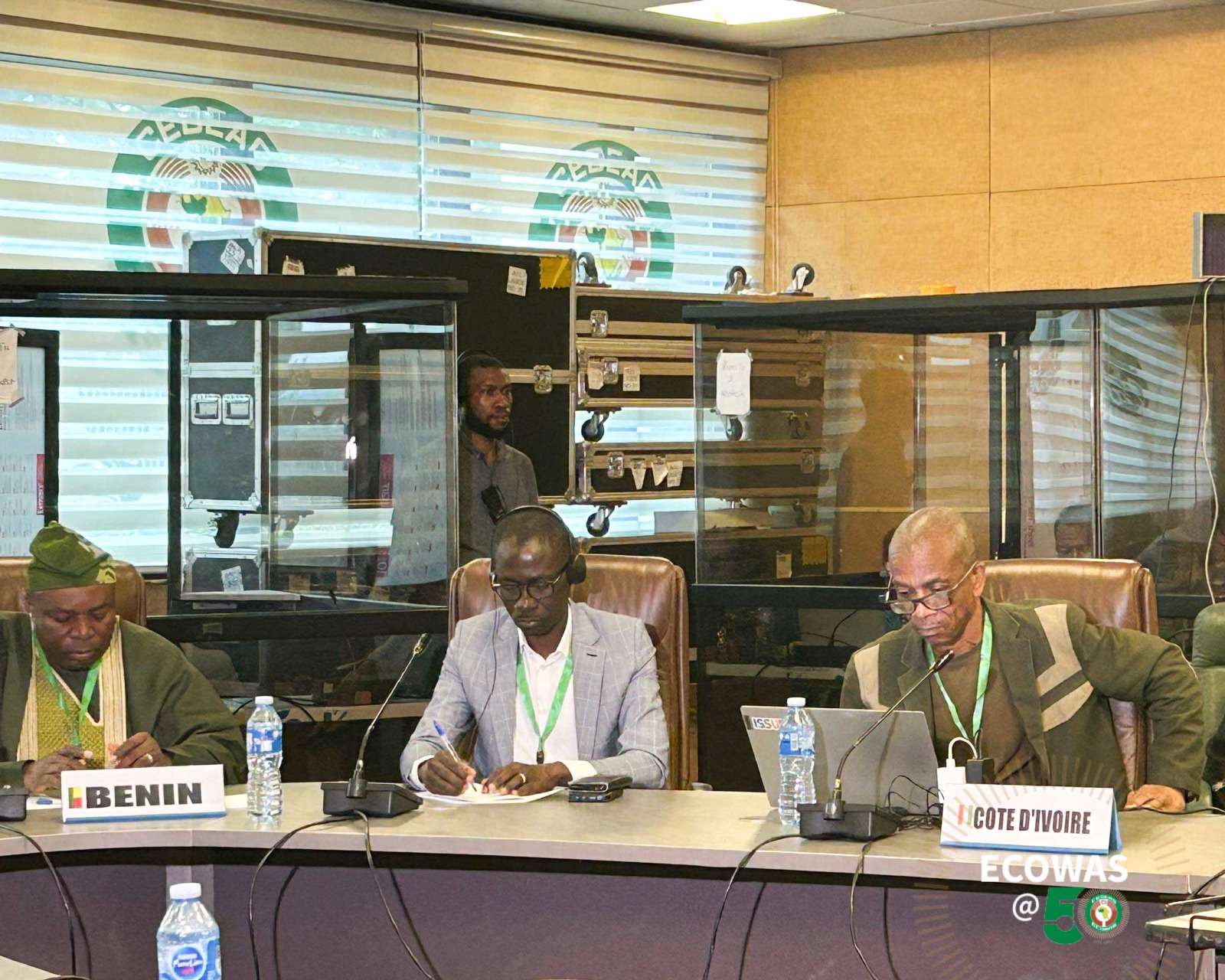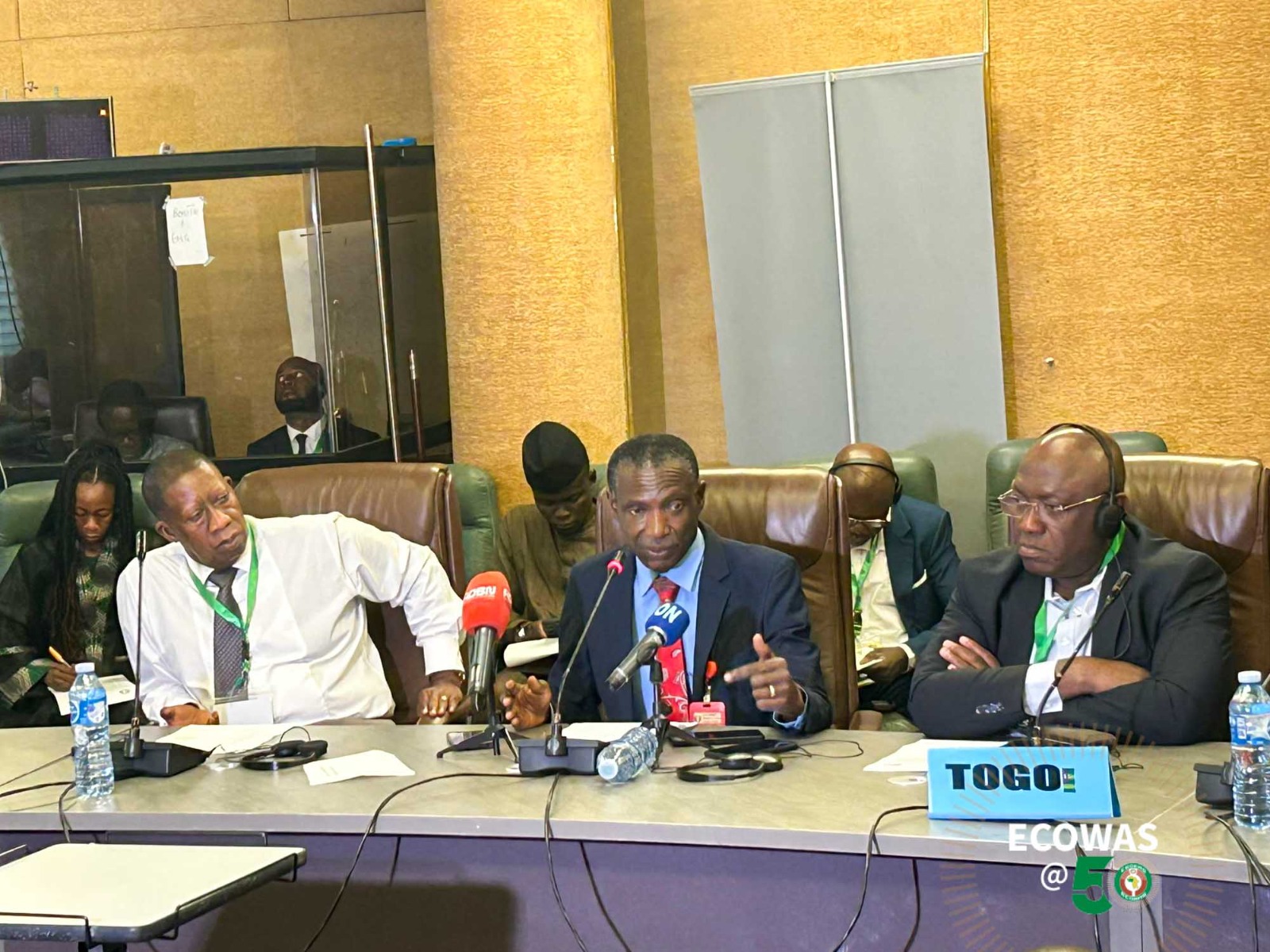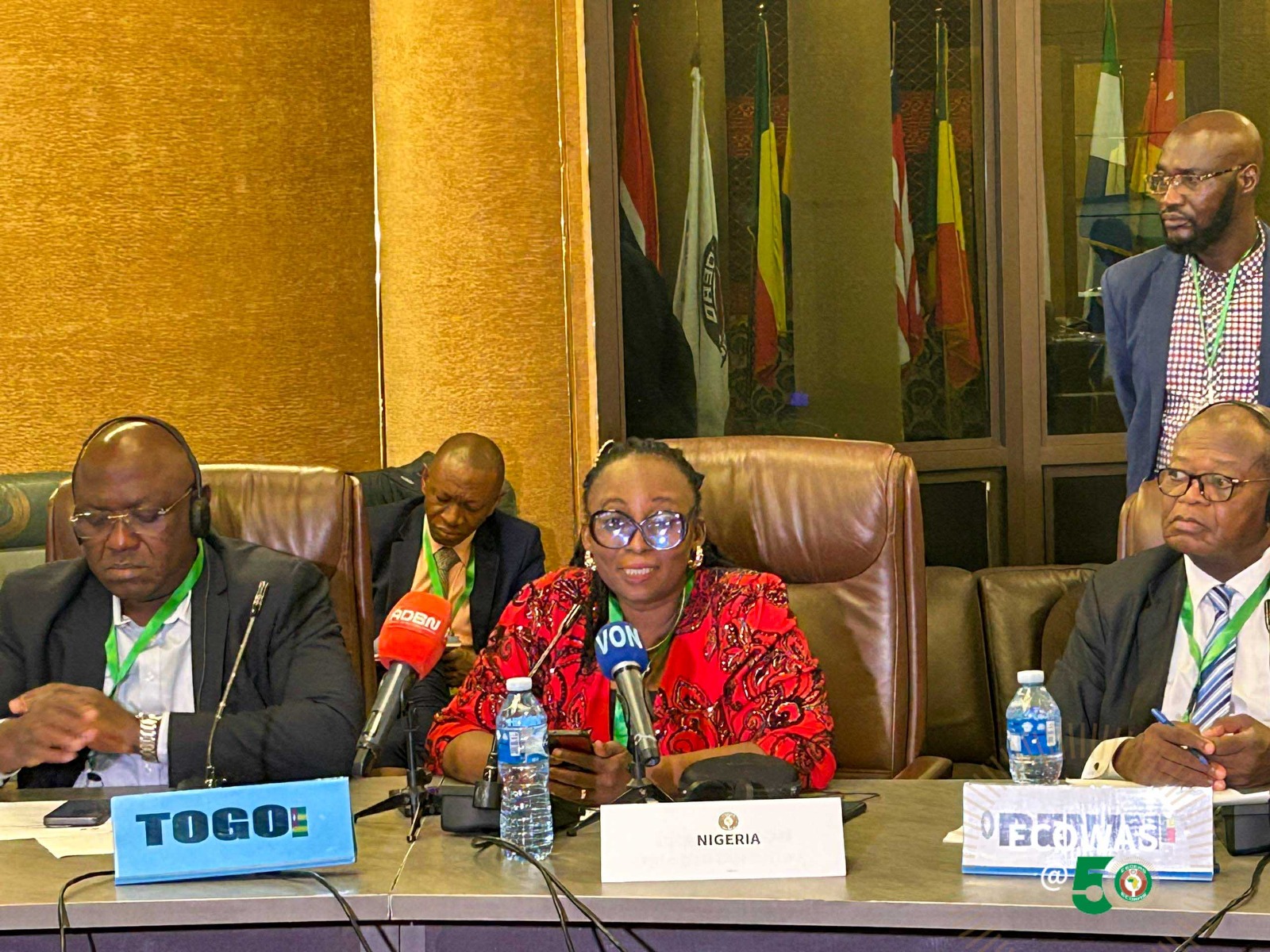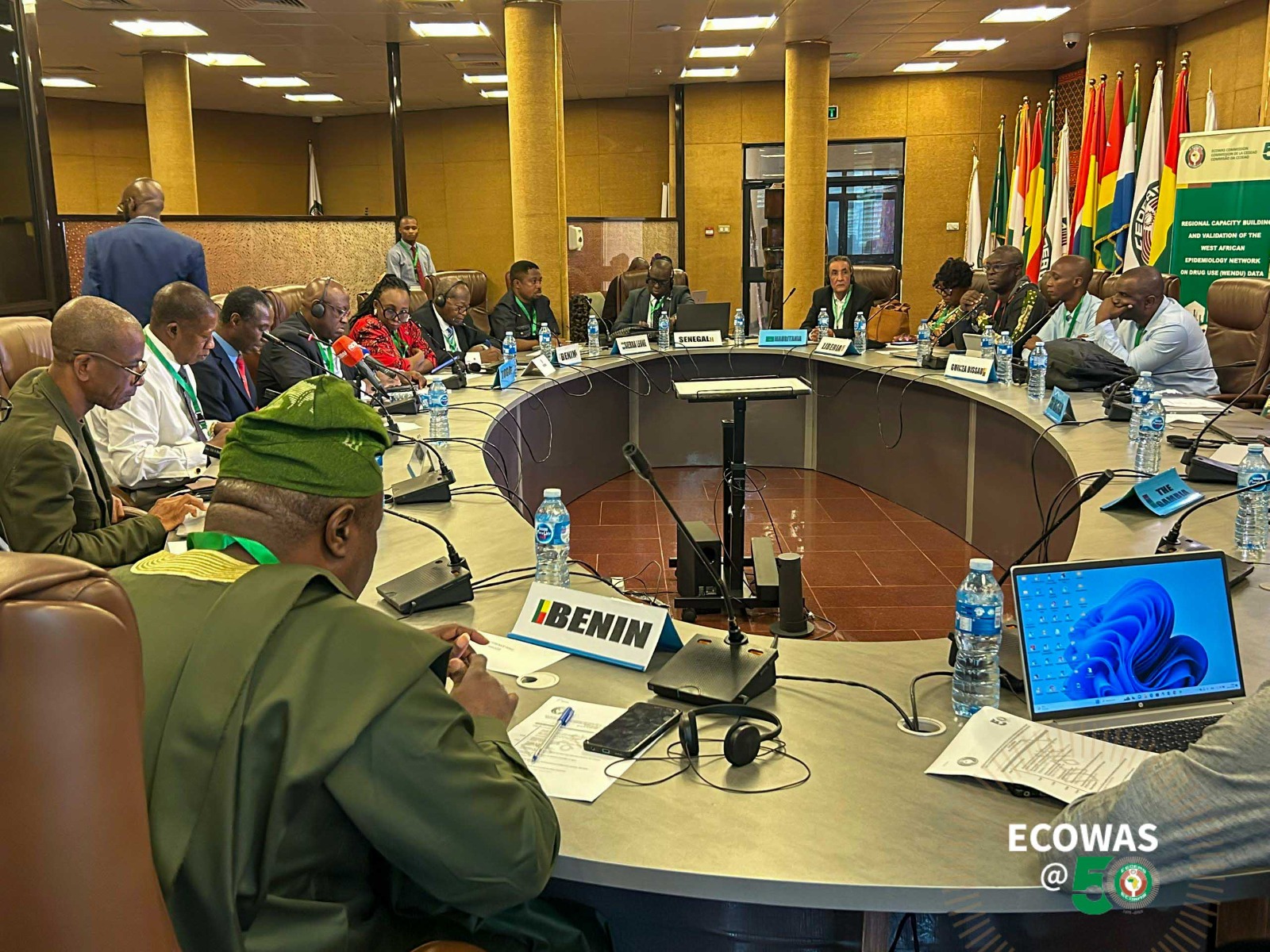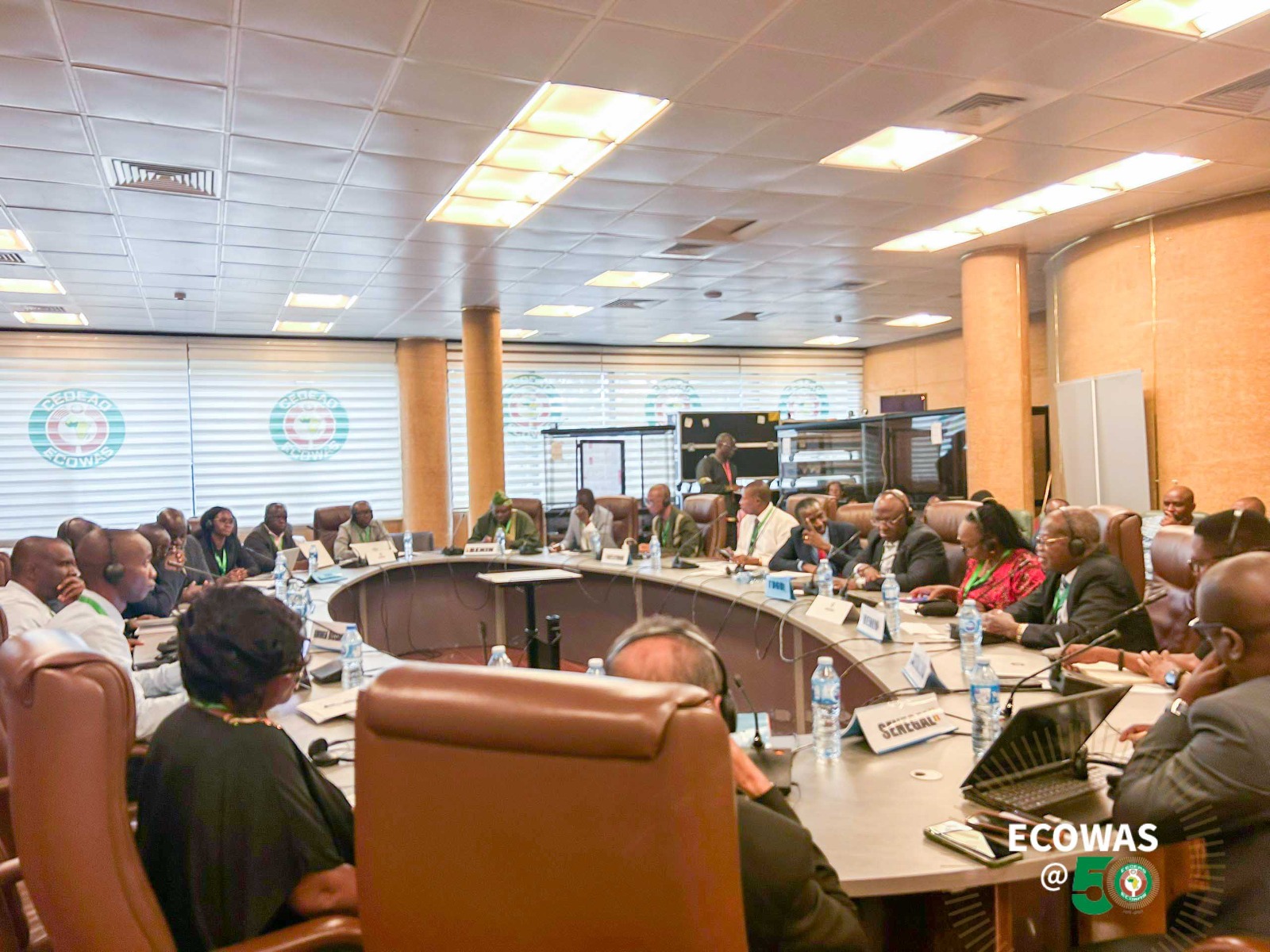ECOWAS launches digital platform and strengthens regional capacity in drug control
28 May, 2025The Economic Community of West African States (ECOWAS) has inaugurated a pivotal three-day workshop focused on regional capacity building for the West African Epidemiology Network on Drug Use (WENDU), alongside the official validation of the 2024 WENDU dataset by Member States. The opening ceremony, held at the ECOWAS Commission Headquarters in Abuja, Nigeria, reaffirms ECOWAS’s enduring commitment to strengthening drug control, promoting public health, and enhancing security across the region.
Delivering the opening remarks on behalf of H.E. Professor Fatou Sow Sarr, Commissioner for Human Development and Social Affairs, Dr. Daniel Amankwaah, commended the dedication of national focal points and resource persons, whose consistent efforts have ensured the progressive development of the WENDU reports since 2014. He acknowledged the critical financial and technical support provided by the European Union and the Enhancing African Response to Transnational Organised Crime (ENACT-Africa) initiative. Their contributions have enabled the publication of previous WENDU reports, policy briefs, and scholarly articles, soon to be housed in the ECOWAS Library and distributed to participants.
A major highlight of the event was the announcement of a new ECOWAS digital platform dedicated to drug data management. This centralized, secure, and user-friendly system will facilitate data entry by national focal points, enable real-time access and analysis at the Commission level, and generate timely reports. The platform is expected to significantly improve the region’s capacity for surveillance, coordination, and policy response in the field of drug control.
The opening ceremony also coincided with the observance of ECOWAS Day and marked the beginning of commemorations for the 50th Anniversary of ECOWAS, a milestone being celebrated through various strategic initiatives. Among them is the forthcoming release of a documentary on drug prevention and control in West Africa, developed as part of the ECOWAS@50 celebrations.
The workshop’s technical session focused on the validation of the 2024 WENDU data, which will form the basis of the next official report to be launched at a subsequent ceremony in a Member State. The exercise underscores the Commission’s prioritization of the collection, collation, analysis, and dissemination of drug-related data, supported by continuous training in updated data methodologies.
Addressing the session, Director of the Narcotics and Drug Abuse Division, Federal Ministry of Health of the Federal Republic of Nigeria, and Chair of the Experts Meeting, Pharm. Henrietta Bakura-Onyeneke, emphasized the urgency of renewed commitment and regional solidarity in addressing the evolving drug landscape. She noted that effective and sustainable responses must be informed by accurate, real-time data and urged participants to fully engage in the capacity-building sessions to ensure the successful application of new tools and methodologies in their respective countries.
Pharm. Bakura-Onyeneke further underscored the importance of robust national surveillance systems to ensure that WENDU data accurately reflects both persistent challenges and emerging drug trends across Member States. “This is not merely a technical exercise,” she stressed, “but a call to action to protect the health and dignity of our communities.”
In his closing intervention at the opening ceremony, Head of Social Affairs Division, ECOWAS Commission, Dr. Albert Dalmanda, reflected on the symbolic significance of the 28th of May, noting it as the date of ECOWAS’s founding and the opening day of the regional anti-drug workshop. He paid tribute to the vision and sacrifices of the ECOWAS founding fathers and reaffirmed the region’s shared goal under ECOWAS Vision 2050: to transition from an ECOWAS of States to an ECOWAS of Peoples, united in prosperity, dignity, and peace.
He further emphasized that the fight against drug abuse and trafficking is inseparable from the broader regional objectives of human security, youth empowerment, and sustainable development. The workshop, he noted, is not only a technical exercise but a reaffirmation of ECOWAS’s commitment to people-centered governance, where public health and human development remain at the core of its interventions.
Dr. Dalmanda applauded the efforts of national focal points and technical experts present, encouraging them to take full ownership of the WENDU mechanism, and to ensure that validated data are translated into actionable national policies. He also highlighted the importance of cross-sectoral collaboration between health, justice, education, and law enforcement actors in crafting comprehensive responses to drug-related threats.
In line with the ECOWAS Management Strategy 2022–2026, the workshop underscores the Commission’s focus on institutional strengthening, digital transformation, and regional data governance. The launch of the new digital platform directly supports the strategic pillar on Improved Service Delivery to Citizens, while reinforcing the ECOWAS Early Warning and Response Network (ECOWARN) framework through timely and credible data on drug-related threats.
Beyond institutional outputs, the real impact is on the ECOWAS citizen: safer communities, more responsive public health systems, and greater inclusion of vulnerable populations—especially youth and women—who are most affected by drug abuse and its consequences. The workshop’s outcomes are intended to cascade down to national health systems, border control strategies, and social policy, enhancing each Member State’s ability to protect its people.
As the region enters a new era of digital cooperation and integrated health security, the 2024 WENDU data validation process represents a turning point. It brings together data, leadership, and political will in pursuit of a singular goal: a safer, healthier, and more resilient West Africa. This is the vision of ECOWAS of Peoples—and this workshop is one step closer to making it a reality.




